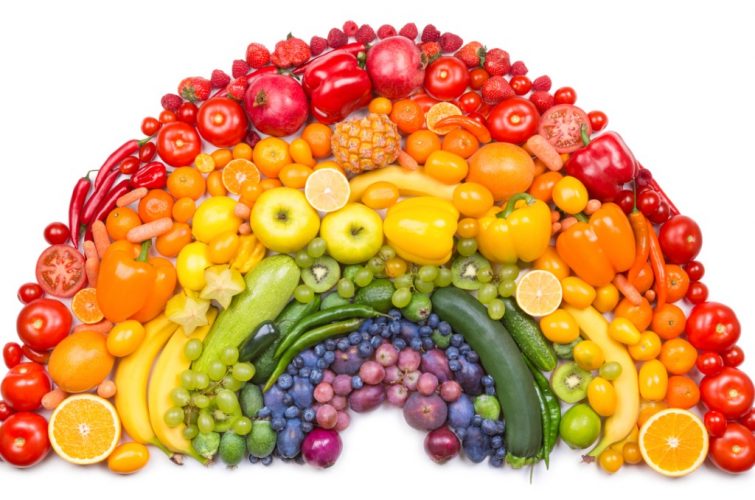
Supporting your immune system and health through good nutrition is important in all stages of life to prevent illness and disease, and this certainly becomes more important when new viruses like COVID-19 arise.
Along with the COVID-19 pandemic was a stream of misinformation and bogus COVID cures thanks to the online world. Cures such as boiling garlic, drinking colloidal silver, blowing a hairdryer up your nose (this was indeed circulated online) or even to go as far as paleo Pete’s magic biocharger device that was meant to treat COVID-19 by ‘stimulating and invigorating the body to improve health, wellness and athletic performance’(…. Say whaaat?).
But the bottom line is there is no special diet or cure for COVID-19. In fact, supporting your health and immune system through optimal nutrition is the BEST thing you can do to prevent illness or disease or improve your outcomes if unwell. The World Health Organisation have highlighted from the start that adequate nutrition and hydration is critical during the COVID-19 outbreak to lower the risk of infection and to support our immune systems.
Eating a variety of foods from the 5 major food groups. This can help to achieve an intake of a range of key nutrients that support immune function including vitamins, minerals, omega-3 fatty acids and protein.
Fruit and Vegetables
Include a variety of vegetables and fruits in your diet and aim for different types and colours to achieve a wide array of vitamins, minerals and plant compounds important for fighting disease, reducing inflammation and supporting immune health. Different coloured fruit and vegetables will contain different antioxidants and phytochemicals – so aim for the rainbow!
Fruits particularly high in antioxidants, polyphenols and vitamin C include all berries, citrus fruits and kiwi fruit
Green fruit/veg are not only good sources of folate and fibre, but they are rich in a particular type of phytochemical – chlorophyll which is responsible for their vibrant green colour. Chlorophyll is rich in antioxidants and a range of nutrients such as magnesium, iron, potassium vitamin C and B vitamins, all important for a range of bodily functions especially immune health.
Yellow/Orange fruit/veg contain carotenoids- a type of pigment that supports the production of Vitamin A in our bodies. Vitamin A is important for healthy skin and hair, immune function and vision.
Red fruit/veg are high in the antioxidants lycopene and anthocyanin, and generally rich in vitamin-C too!
Blue/purple fruit and veg are rich in anthocyanins, Vitamin E, A and other antioxidants that have shown to support cardiovascular health, immune health, blood sugar and weight regulation.
Grains/cereals
Choose mostly wholegrain and high fibre varieties to increase fiber, B vitamins, iron, folate selenium and a range of other nutrients important for immune health.
The key is to limit refined, processed options like white bread, cereals, crackers, sugary cereals, chips, pastries, cakes and pies.
Protein/Meat/Alternatives
Choose lean meats and poultry, fish, eggs, tofu, nuts, seeds and legumes like chickpeas, lentils, beans to increase protein, vitamin D, iron, zinc, iodine, magnesium and phosphorus in the diet. Eat fish 2-3 times per week to obtain the disease-fighting omega-3 fatty acids to support our immune health.
Dairy/Milk/Alternatives
Dairy- choose mostly reduced fat milk options or soy milk, natural/greek yoghurt and cheese to increase calcium, zinc, vitamin B12, protein and a range of other nutrients found in these foods.
Limit foods high in fat sugar and salt as these foods contain low nutritional value and do not support our health and immune system, but rather have negative impacts.
Exercise daily to help maintain muscle strength, promote blood flow and immune health and achieve a healthy weight. Get outside to achieve your daily vitamin D dosage, from the sun!
Socialise lockdown has made it extremely hard to socialise the way we used to. Use video platforms such as FaceTime, Zoom and Skype to see your loved ones faces. Play a board game, enjoy a nice dinner or even just watch a movie from a video call!
Take it easy – this is a time of adjustment to a new way of living, so be nice to yourself during this change. If your regular gym routine has been upended, try incorporating other ways to exercise such as walking or YouTube exercises. Even have a dance party with your family and friends over FaceTime to burn some calories!
Refer to the Australian guide to healthy eating here for more information.
If you ever need to chat to some one about your individual needs, then don’t hesitate to contact your health care professional or Accredited Practising Dietitian.